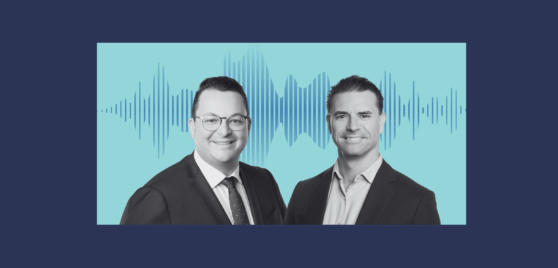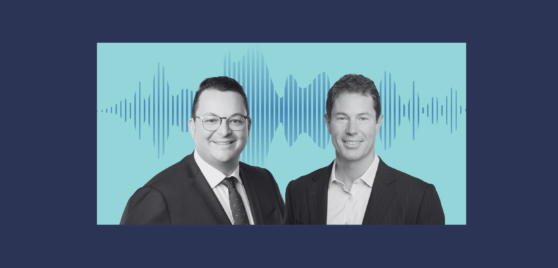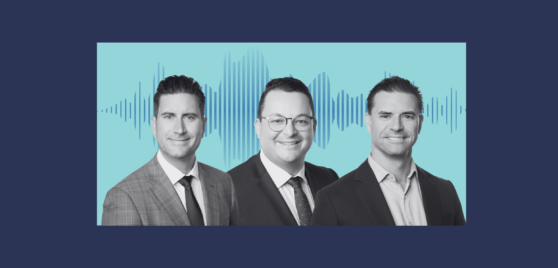By James Thompson, Australian Financial Review
READ
Simon Conn says small cap investing is becoming even more volatile. But he’s got some strategies for success – and three stocks to watch.
Anyone who’s played in Australian small cap stocks knows they’re not a place for the faint-hearted. Wild share price moves, rampant speculation and bizarre trading patterns are all par for the course.
Simon Conn, senior portfolio manager at IML, has seen his fair share of investors get burnt over 25 years investing in the sector. “It tends to be one disappointment and you’re out,” he says. “I suppose I’ve got a thick skin and resilience as a person.”
Both qualities are becoming increasingly important. Not only does Conn say that the boom-and-bust cycles that are part of the small cap sector are becoming more frequent, as investors try to leap on to the next hot theme – from buy now, pay later and cryptocurrencies in the last few years, to lithium and artificial intelligence – but volatility in share prices is becoming even more extreme.
“In the old days, a company disappointed and it went down 20 per cent, but now it’s 40 per cent or 50 per cent. The volatility in share prices is extreme – it’s much more extreme than what I witnessed when I started my career.”
But while the rollercoaster ride might be wild, Conn says a longer-term focus on company fundamentals hasn’t gone out of fashion.
IML’s two main funds, the Australian Share Fund (overseen by Hugh Giddy following the retirement of Anton Tagliaferro) and Australian Smaller Companies Fund Retirement (managed by Conn), are both celebrating their 25th anniversary this month.
Conn’s fund has produced a return of 12.3 per cent per annum since 1998, compared with a 5.6 per cent return from its benchmark, the ASX Small Ordinaries, excluding property trusts. Its 2023 return will come in between 5 per cent and 6 per cent.
“We’ve been able to identify a lot of good stocks over a long period of time,” he says.
The crucial ingredient is a relentless focus on company management. At large companies such as CSL and the big banks, the strength of their market position and the size of their businesses mean management changes have limited impact. “But at the smaller end, it really does need proactive management to run the business,” Conn says.
The chief executive is obviously vital. But in recent years, Conn says he’s come to appreciate the importance of a strong chairman and board.
“As outside investors we get to score management once every six months, whereas the board and particularly the chairman are overseeing the business on a monthly basis at least always, but usually more often than that. They’re talking to management and coaching them, making sure they’re on the right track.
“I’m not talking about just governance. I’m talking about a board that’s really holding management to account every month.”
He gives the example of metal detector maker Codan, which saw its stock leap 31-fold between 2016 and 2021 under CEO Donald McGurk. But Conn says chairman David Simmons, a former CEO at Hills, was vital to the group’s growth.
Quality of boards declining
Alan Rydge, chairman and major shareholder at Event Hospitality & Entertainment (formerly Amalgamated Holdings) was another chairman who delivered for IML. Conn bought in 2003 at about $2.50 a share, and only sold last year when the stock hit $15.
But Conn worries that the quality of boards is declining as the prospective directors look elsewhere.
“I think the challenge for listed companies today is the compliance costs are so high, and that the burden of being a chair of the board is quite high. So, we’re seeing a lot of really good directors and potential directors of public companies that have been lured to the dark side of private equity.”
The coming earnings season looms as another potentially testing period for small caps. Just as it seemed earnings were normalising after the pandemic, the economy appears to have softened markedly since April, and Conn expects this to colour commentary about the outlook.
“It feels like we’re back where we were in 2019 before COVID, where we were thinking the next year was going to be quite a low growth environment with pressure on costs.”
But that’s not necessarily a bad set-up for investors, he argues.
“It’s the perfect time to be picking stocks. You’ve got to be active and you’ve got to back management teams that have the wherewithal to stick with their strategy and execute.”
Conn’s expecting an avalanche of questions about AI, but IML’s focus will be on finding companies where the technology can make a real difference to profits.
Integral Diagnostics, a holding of the small cap fund, is a good example of where AI has already been employed to improve productivity and margins.
Conn will be watching two stocks he thinks the market has mispriced: online tradie classifieds group Hipages, which he sees as a leader in its market, and automotive and water products group GUD.
Conn particularly likes the latter’s move into four-wheel-drive accessories; he points out GUD trades on an earnings multiple half that of fellow SUV accessories maker and long-term market darling, ARB Corporation.
His fellow portfolio manager on the fund, Lucas Goode, likes transport group Kelsian. He says it might provide a left-field way to play the AI boom, given a new acquisition in the US means it is now providing charter bus services to get Google employees to work in Silicon Valley.
This article was first published in the Australian Financial Review on 18 July 2023.
INVESTMENT INSIGHTS & PERFORMANCE UPDATES
Subscribe to receive IML’s regular performance updates, invitations to webinars as well as regular insights from IML’s investment team, featured in the Natixis Investment Managers Expert Collective newsletter.
IML marketing in Australia is distributed by Natixis Investment Managers, a related entity. Your subscriber details are being collected by Natixis Investment Managers Australia, on behalf of IML. Please refer to our Privacy Policy. Natixis Investment Managers Australia Pty Limited (ABN 60 088 786 289) (AFSL No. 246830) is authorised to provide financial services to wholesale clients and to provide only general financial product advice to retail clients.






